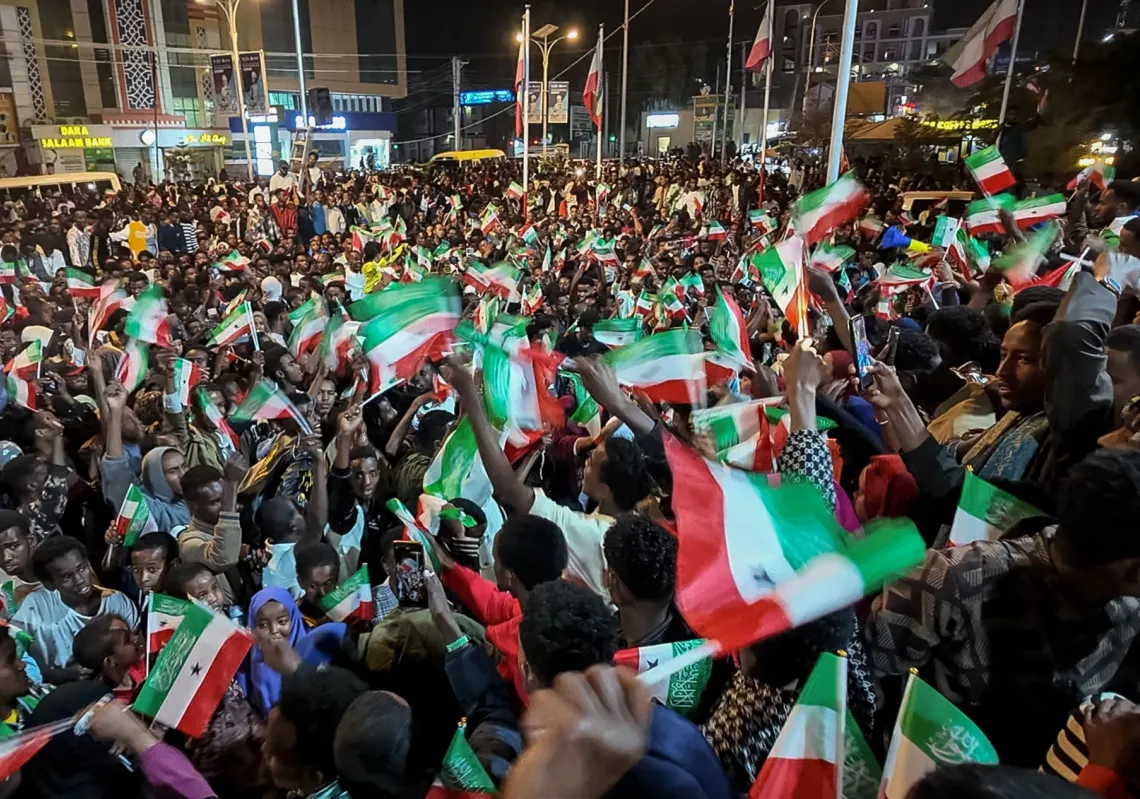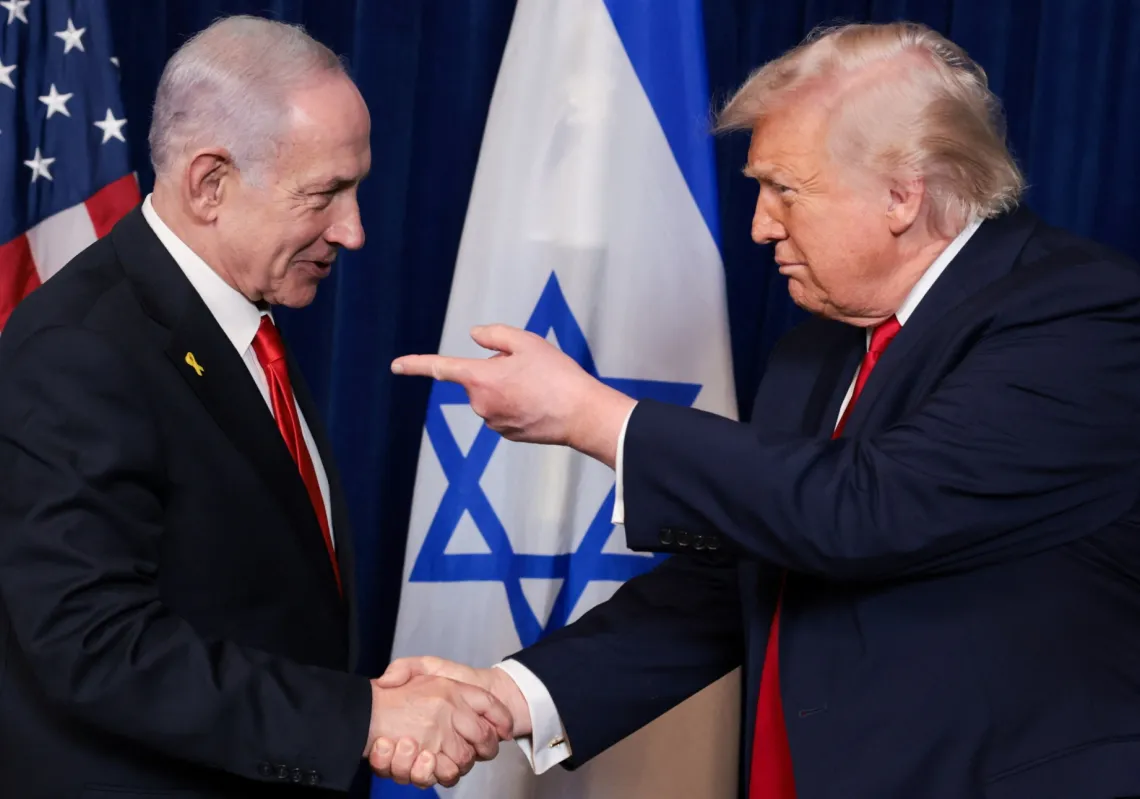Former cell mates of Mohammed Bade'a cannot forget the weeping that used to haunt him from time to time, while he was echoing the famous Brotherhood anthem "I will be delivered, God willing." They used to pity him, thinking him unable to bear the pain of his imprisonment and the solitude of his cell. Some of them called him the weeping man, and others described him as weak, but all agreed that he could never be fit to guide the Muslim Brotherhood. Thus, his appointment as leader of the Brotherhood came as a surprise. They knew that it was the decision of Group Deputy Mahmoud Ezzat, so Bade'a could be the public leader of the Muslim Brotherhood while Ezzat became its de facto ruler.
From the beginning of his term, changes within the Brotherhood have confirmed their suspicions. For the first time, the Guidance Office took a decision to ban the new guide from making statements to the media. Sources also asserted that the group decided to form an information office that delivers all statements on behalf of the guide. Observers of the Muslim Brotherhood have considered this important evidence revealing of Bade'a’s vulnerability. In fact, they see his term as an extension of that of the 4 guide, Mohammed Hamed Abu al-Nasr, who was excluded from running the affairs of the group because of an illness, and whose condition allowed Mustafa Mashour to take control of the group.
Bade'a himself has also made his fair share of mistakes by revealing that he is at odds with the current regime. Early into his term he said ‘Women and Christians are not fit for the presidency, and if the people chose any of them we will not agree to that, as it is contrary to the Islamic Sharia. Whoever opposes the Muslim Brotherhood and refuses to follow our principles should leave the group.’ These opinions are dangerously close to those of Mahmoud Ezzat, and as a result, there is growing concern for the future of intellectual or organizational dissension within the group.
Mohammed Bade'a Abdul Majeed Sami was born in Mahalla al-Kubra on July 8, 1943, making him 67 years old. He is married to Mrs. Soumaya Shinawi, daughter of Mohammad Shinawi, one of the most prominent leaders of the first generation of the Muslim Brotherhood, and one of the most prominent members of the special order. Bade'a has three children; an engineer, a doctor and a pharmacist. He currently works as a full-time professor in the Department of Pathology, Faculty of Veterinary Medicine, at the Egyptian Beni Suef University.
These facts of his life, however, do not provide much insight into Mohammed Bade'a’s personality nor his ability to rule, unless accompanied by details of the journey which has taken him through the ins and outs Muslim Brotherhood. Bade'a grew up in Mahalla al-Kubra in a religious family, but he did not know anything about the Muslim Brotherhood until 1959. During that year, he met a member of the Syrian Muslim Brotherhood, Dr Mohammed Suleiman al-Najjar, who would later invite him to join the Brotherhood. Bade'a would grow to consider al-Najjar his teacher; a man responsible for his upbringing.
After joining the Brotherhood, Bade'a began an organization based on the thought of Sayed Qutb’s book Milestones on the Road. It was then that Bade'a became enchanted with the writings of Sayed Qutb, to the extent that he said he ‘experienced the sweetness of the Qur'an only through the famous Qutb’s book In the shadows of Qur'an. However, it was through his involvement in this organization, the ‘1965 Organization’ as it was called, that he would be sentenced to 15 years in prison.
Bade'a was released from prison in 1974, after spending 9 years behind bars. He resumed his academic life, and received a Masters degree in Veterinary Medicine from Zagazig University in 1977. However, his role within the Muslim Brotherhood had largely diminished by then, and no role was attributed to him during the process of the second foundation of the group. Sources inside the Muslim Brotherhood explained the absence of Bade'a from the second foundation of the group as a result of his dissatisfaction with the performance of the Brotherhood’s leader at the time, Omar Telmesani.
As a result, Bade'a left Egypt for Yemen in the early 1980s, where he became a founding member of the "Dozens Organization". This organization consisted of a number of Muslim Brotherhood leaders who started forming organizational links in Arab countries without the knowledge of Omar Telmesani. Bade'a returned to Egypt only after the death of Omar Telmesani, and the guide at this time was Muhammad Hamid Abu al-Nasr. However, due to his illness, Mustafa Mashour was the actual leader to the group.
During the next few years, Bade'a was responsible for the educational program of the group until he assumed the leadership position following an organizational crisis that has been called the worst in the recent history of the Brotherhood. Bade'a’s management of the group will be dictated by his aim to become a preacher of reconciliation with the organization’s opponents, as was manifested in his inauguration speech when he asserted that the group was not in a feud with the regime. In addition, his leadership will be marked by his recognition, unlike that of past leaders, that the Muslim Brotherhood is undergoing a crisis.
However, the most serious issue he will have to confront relates to the perception of weakness that follows him, and the belief that Ezzat is truly in charge of the organization. One Brotherhood leader was quoted as saying that Bade'a may soon discover that crying in prison is easier than leading the Muslim Brotherhood, because prison torments are much less than those of following the whims and ambitions of Mahmoud Ezzat.








